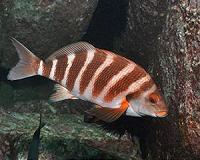 |
Adelaide, Australia (SPX) May 20, 2011 The mass extinction of marine life in our oceans during prehistoric times is a warning that the Earth will see such an extinction again because of high levels of greenhouse gases, according to new research by geologists. Professor Martin Kennedy from the University of Adelaide (School of Earth and Environmental Sciences) and Professor Thomas Wagner from Newcastle University (Civil Engineering and Geosciences) have been studying 'greenhouse oceans' - oceans that have been depleted of oxygen and suffered from increases in carbon dioxide and temperature. Using core samples drilled from the ocean bed off the coast of western Africa, the researchers studied layers of sediment from the Late Cretaceous Period (85 million years ago) across a 400,000-year timespan. They found a significant amount of organic material - marine life - buried within deoxygenated layers of the sediment. "Our research points to a mass mortality in the oceans at a time when the Earth was going through a greenhouse effect, with high levels of carbon dioxide in the atmosphere, and rising temperatures, leading to a severe lack of oxygen (hypoxia) in the water that marine animals are dependent on," Professor Kennedy says. "What's alarming to us as scientists is that there were only very slight natural changes that resulted in the onset of hypoxia in the deep ocean. This occurred relatively rapidly - in periods of hundreds of years, or possibly even less - not gradually over longer, geological time scales, which suggests that the Earth's oceans are in a much more delicate balance during greenhouse conditions than originally thought, and may respond in a more abrupt fashion to even subtle changes in temperature and CO2 levels than previously thought." Professor Wagner says the results of their research, published in the Proceedings of the National Academy of Sciences (PNAS), have relevance for our modern world: "We know that 'dead zones' are rapidly growing in size and number in seas and oceans across the globe. These are areas of water that are lacking in oxygen and are suffering from increases of CO2, rising temperatures, nutrient run-off from agriculture and other factors." Professor Kennedy says: "If you consider that the amount of carbon dioxide in our atmosphere has doubled over the past 50 years, this is like hitting our ecosystem with a sledge-hammer compared to the very small changes in incoming solar energy (radiation) which was capable of triggering these events in the past. This could have a catastrophic, profound impact on the sustainability of life in our oceans, which in turn is likely to impact on the sustainability of life for many land-based species, including humankind." Professor Kennedy says the geological record offers a glimmer of hope thanks to a naturally occurring response to greenhouse conditions. "After a hypoxic phase, oxygen concentration in the ocean seems to improve, and marine life returns. Our results show that natural processes of carbon burial kick in. Importantly, this rescue comes from the land, with soil-formed minerals acting to collect and bury excess dissolved organic matter in seawater. Burial of that excess carbon ultimately contributes to CO2 removal from the atmosphere, cooling the planet and the ocean. "This is nature's solution to the greenhouse effect and it could offer a possible solution for us. If we are able to learn more about this effect and its feedbacks, we may be able to manage it, and reduce the present rate of warming threatening our oceans."
Share This Article With Planet Earth
Related Links University of Adelaide Water News - Science, Technology and Politics
 Ocean warming detrimental to inshore fish species
Ocean warming detrimental to inshore fish speciesCanberra, Australia (SPX) May 19, 2011 Australian scientists have reported the first known detrimental impact of southern hemisphere ocean warming on a fish species. The findings of a study published in Nature Climate Change indicate negative effects on the growth of a long-lived south-east Australian and New Zealand inshore species - the banded morwong. Scientific monitoring since 1944 by CSIRO at Maria Island, off the east c ... read more |
|
| The content herein, unless otherwise known to be public domain, are Copyright 1995-2010 - SpaceDaily. AFP and UPI Wire Stories are copyright Agence France-Presse and United Press International. ESA Portal Reports are copyright European Space Agency. All NASA sourced material is public domain. Additional copyrights may apply in whole or part to other bona fide parties. Advertising does not imply endorsement,agreement or approval of any opinions, statements or information provided by SpaceDaily on any Web page published or hosted by SpaceDaily. Privacy Statement |